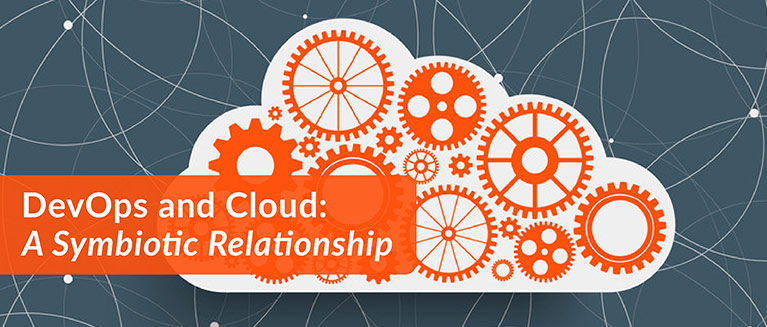DevOps and Cloud: A Relationship Destined to be Successful

Today, DevOps and cloud computing, both are not mutually exclusive, although their relationship to the player is often uncertain and confusing. Although cloud statistics are about technology and services, DevOps is more focused on procedures and process improvement. However, DevOps cloud computing is important in every organization’s journey to successful digital transformation. That’s a fact: DevOps cloud computingclouds are connected to the mutual joints. Thus, the vast range of project development of the cloudsare supposed to use the DevOps cloud computing,and the listing is going a bit further. The benefits of using DevOps projects in the cloud are also better defined. They understand the rapid delivery of application development in order to respond more quickly to the needs of business units, the demands of fast-paced software users, and the costs of developing, testing, running and deploying. Therefore, business is pushing its employees to learn cloud computing technology to avail the perks accordingly.
DevOps Cloud Automation Center
The basic nature of DevOps cloud computing makes it possible to use the standard centralized automation platform. The use of cloud platforms solves a major software distribution problem caused by the distributed nature of business systems. Most private and public cloud providers support DevOps targets, including seamless integrations and stable delivery. On the other hand, this ensures centralized management and monitoring as well as reducing the cost of DevOps automation on site. However, DevOps uses a bandwidth system that can monitor database cloud prevention and application workload. Thus, the prerequisite for maximizing the cloud is the ultimate automation. By expanding the concept of continuous improvement of the cloud platform, DevOps provides less system vulnerability and greater security and offers the chance to learn cloud computing technology to cope with the automation center.
DevOps Best Practices for Efficient Cloud Computing
DevOps offers several key features that help organizations effectively manage their cloud capabilities, these include:
- Infrastructure as Code (I-A-C): The IAC involves providing servers and installing application code, which are key components of the system.
- Automation Using Applications: DevOps practices make it easy to create fully automated user guides that are critical to the development of the lifecycle.
- Application Lifecycle Management (A-L-M): DevOps principles, such as continuous integration and delivery, help you deploy effective ALM to the cloud.
- Assurance of Quality and Continuous Testing: DevOps capabilities meet the challenges of quality assurance and cloud testing by providing more cloud-based testing environments that improve quality and productivity.
- Sharing knowledge with the cloud: DevOps promotes the exchange of information between cloud service providers and SMEs throughout the application lifecycle, using online communities focused on improving communication and collaboration, thus providing the greatest possible content.
The Importance of Cloud Computing for DevOps
DevOps cloud computing is complementary in many ways. Cloud-friendly app design allows developers to have more things and improve their productivity and efficiency. This allows developers to quickly create a development environment without the need for IT operations to provide resources and infrastructure. Cloud computing provides a flexible IT infrastructure that enables enterprise flexibility. Though, this is supposed to lead the transformation of information technology, helping companies streamline and integrate DevOps processes. All the same, DevOps tools and services eliminate human error and help create reproducibility by automating and simplifying code and management processes.
IT Transformation Made Possible by DevOps Using Cloud Technology
With respect to the current trend in the IT industry, an individual is advised to learn cloud computing technology and computing with DevOps, which provides significant flexibility in application development, helping to reduce infrastructure costs and extend global reach. However, cloud-based operations increase availability and abandonment and eliminate downtime, which improves business credibility and customer satisfaction. All the same, DevOps and IAC automation help reduce cloud complexity and improve maintenance. Thus, simplified processes and faster access to the development environment provide better time to market your products.
DevOps – a Leading Team to the Cloud
On the other hand, the development process, which has slowed the growth of many companies, needs to be directed and accelerated. However, stories are great for marketers who can’t buy companies or market leaders who can’t bring products to market. So DevOps doesn’t have many cloudless values and without DevOps, there isn’t much cloud value. This fact is taken for granted by companies that once thought they could go one way or the other and lacked confidence. We can see that there is definitely a dependency between DevOps and the cloud.
DevOps – Lead The Way
As DevOps and the cloud continue to demonstrate their shared values for entrepreneurs, more technical and technology managers are working to remove technical and bureaucratic barriers to growth and business opportunities. However, these same companies need to go further, achieving the highest DevOps value, which includes stable and flexible distribution. Many business technologists do not understand the concept so well, and even fear it is a way to reduce the productivity and quality of the application. But if you add cloud to the DevOps equation, you will see that companies have no choice. However, DevOps needs to take us there for cloud statistics to succeed.
Thus, the value and functionality of DevOps, as well as the value and functionality of cloud computing, are only synergistic. Failure to do both will not give you the same value. On the business side, many companies do not have the organization or resources to manage DevOps. Various new approaches and related technologies are not well understood, and traditional methods remain safe harbors that offer little value to the company. The changes described here are an interesting avenue for these organizations. However, recognizing the importance and priorities of deploying DevOps in the cloud, organizations can reap many potential benefits, and force their workforces to learn cloud computing technology, which enhances with the greater flexibility and lower operating costs.




